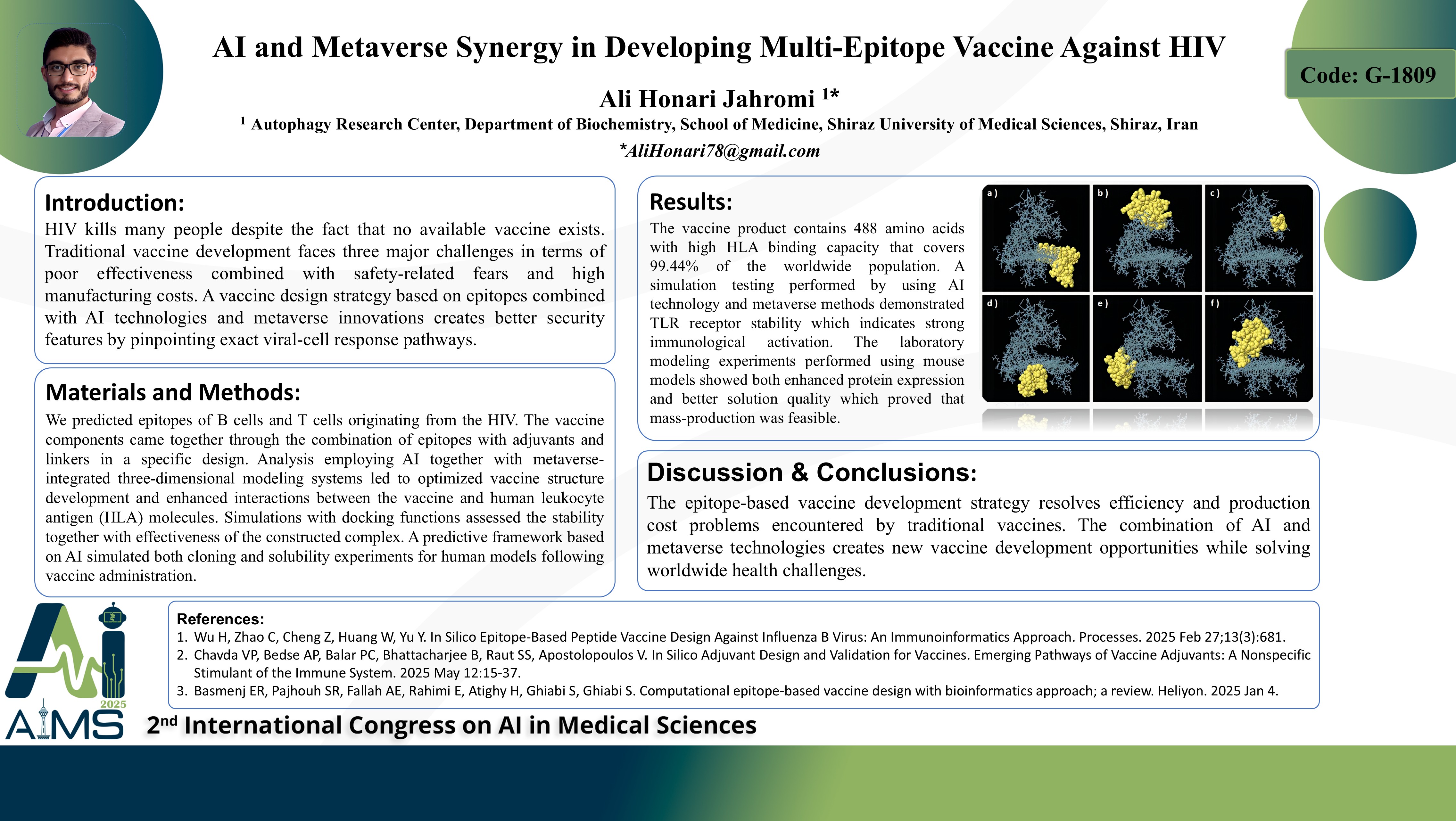The Future of Vaccination: AI and Metaverse Synergy in Developing Multi-Epitope Vaccine Against HIV
Code: G-1809
Authors: Ali Honari Jahromi * ℗
Schedule: Not Scheduled!
Tag: Drug Discovery
Download: Download Poster
Abstract:
Abstract
Background and Aims: The viral disease Human immunodeficiency (HIV) kills many people despite the fact that no available vaccine exists. Traditional vaccine development faces three major challenges in terms of poor effectiveness combined with safety-related fears and high manufacturing costs. A vaccine design strategy based on epitopes combined with AI technologies and metaverse innovations creates better security features by pinpointing exact viral-cell response pathways. Method: Using AI-enhanced immunoinformatics methods we predicted epitopes of B cells and T cells originating from the HIV. The vaccine components came together through the combination of epitopes with adjuvants and linkers in a specific design. Analysis employing AI together with metaverse-integrated three-dimensional modeling systems led to optimized vaccine structure development and enhanced interactions between the vaccine and human leukocyte antigen (HLA) molecules. Simulations with docking functions assessed the stability together with effectiveness of the constructed complex. A predictive framework based on AI simulated both cloning and solubility experiments for human models following vaccine administration. Results: The vaccine product contains 488 amino acids with high HLA binding capacity that covers 99.44% of the worldwide population. A simulation testing performed by using AI technology and metaverse methods demonstrated TLR receptor stability which indicates strong immunological activation. The vaccine production benefited from its superior physicochemical properties. The laboratory modeling experiments performed using mouse models showed both enhanced protein expression and better solution quality which proved that mass-production was feasible. Conclusion: The authors present a groundbreaking formulation approach using AI technology enabling better collaboration between immunoinformatics and metaverse technologies. Prospective medical applications demonstrate major potential in the multi-epitope vaccine. The epitope-based vaccine development strategy resolves efficiency and production cost problems encountered by traditional vaccines. The combination of AI and metaverse technologies creates new vaccine development opportunities while solving worldwide health challenges although more research is required to confirm the method's effectiveness.
Keywords
Vaccine Design, HIV, Immunoinformatics, Multi-Epitope Vaccine
